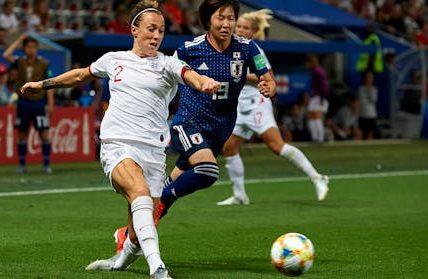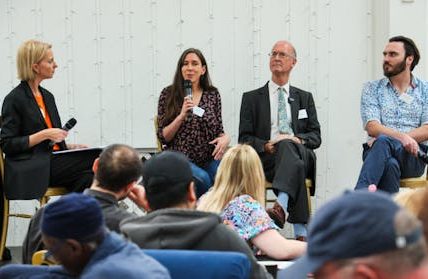UK to lower voting age to 16 – a once-in-a-generation opportunity to secure the future health of British democracy
The UK government has announced that the voting age will be lowered to 16 at the next election as part of a wider effort to restore trust in and “future-proof” democracy.
Votes at 16 has grown from a niche concern to become a salient – if contentious – issue supported by most UK political parties and electoral reform groups. The Conservative party remains a holdout – but has never acknowledged the contradiction of its continued opposition to the universal lowering of the voting age while empowering the Scottish and Welsh parliaments to enact the measure during its time in government.
This is a policy response to concerns about declining youth democratic engagement since the late 1990s. Since 1997, the UK general election turnout rate for those aged 65 years and over has consistently been at least 20 percentage points higher than for those aged 18-24.
Want more politics coverage from academic experts? Every week, we bring you informed analysis of developments in government and fact check the claims being made.
Sign up for our weekly politics newsletter, delivered every Friday.
Some opponents argue that the Labour government is lowering the voting age to 16 for its own electoral interest, but we should remember this was a clearly stated election manifesto commitment. Votes at 16 was part of the package that delivered Labour to government in 2024 on a huge majority.
That said, public opinion remains steadfastly opposed. The government will need to handle this tension carefully, ensuring that 16- and 17-years-olds are not treated as second-class members of the electorate as this debate pushes forward.
For and against
As when the voting age was universally lowered to 18 in 1969, the case for change has pivoted on perceptions of maturity and markers of adulthood. There was considerable political and public consensus in the 1960s that 18 was the appropriate age of majority and enfranchisement. This link has endured, and many people continue to think under 18s are too socially and politically immature to vote responsibly or regularly.
Supporters of reform emphasise the need to align enfranchisement with other rights realised before or at age 16 – such as paying tax, medical consent, working, autonomy to make decisions about future education and work lives, and undertaking military (if not frontline) service.
Opponents respond by noting the age of majority remains 18, and that the minimum age for many protective and social rights, such as marriage and leaving full-time education, has been pushed upwards to 18 in the past decade or so.
But while 18 remains the legal marker of adulthood, transitions from youthhood to adulthood have become extended and complex. There is no single age point at which young people realise all the social and economic rights and responsibilities associated with adulthood.
Biological maturation extends from late-stage childhood until early adulthood (mid-20s). Traditional markers of adulthood such as financial independence, owning a property, or getting married and having children are occurring later in life than in previous generations.
It is more than 50 years since parliament last reflected and reviewed how society understands, and frames, issues of adulthood and citizenship linked to the ages of majority and enfranchisement. Lowering the voting age to 16 offers a timely opportunity to do so again.
Extensive parliamentary debate lies ahead as this bill makes its way through to becoming law. MPs should take that time to discuss and build consensus around what British democracy should offer young people, and how enfranchisement should be conceptualised for future generations.
Lowering the age is just the start
Now that 16- and 17-year-olds are part of the electorate, we can hope that political parties will improve their responsiveness to the interests of young people.
Unfortunately, where the voting age has already been lowered, we’ve not yet seen parties address their skewed decision-making, representation or electoral behaviour, which continues to favour older voters. The average age of elected representatives has remained around 50 years of age in all UK national and devolved parliaments, and higher in local government. Few young people join political parties or are active in their campaigning.
There is also significant evidence that, regardless of whether the voting age has been lowered or not, young people are not appropriately supported to be politically and media literate to understand how and when to vote, and to make informed and independent voter choices.
So, lowering the voting age should only be the first step in a more concerted effort to improve political literacy and democratic engagement as young people grow up. This should begin in primary, not secondary, school and continue through further and higher education.
Elected representatives should hold regular school surgeries where they meet children and young people, and listen and respond to their issues and concerns. Young people need to learn to discuss political issues in school settings, and political parties should host election hustings in schools and colleges. Young people should also be involved in decision-making in their schools and communities.
Lowering the voting age offers an opportunity to reinvigorate how we host elections to ensure young people enjoy voting for the first time – and encourage their future participation.
Making electoral registration automatic, as the government has promised, will help. But joining the electoral roll is a significant civic moment in young people’s lives. Schools should host electoral registration ceremonies where pupils are welcomed into the electorate by local elected representatives, and automatically given a voter authority certificate so they have an appropriate piece of voter ID.
Political parties need to embrace this once-in-a-generation opportunity that voting age reform presents to secure the future health of British democracy.
Andrew Mycock does not work for, consult, own shares in or receive funding from any company or organisation that would benefit from this article, and has disclosed no relevant affiliations beyond their academic appointment.



